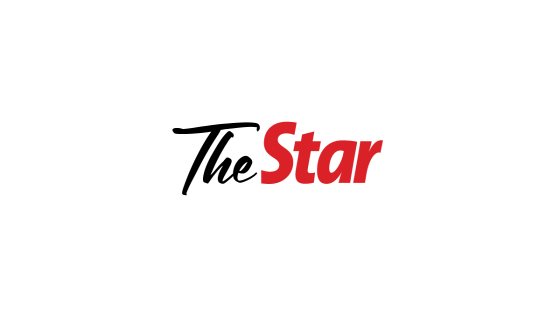There’s been some talk lately about Donald Trump’s light campaign schedule compared to President Joe Biden, who’s been visiting swing states constantly even as he’s handling some very thorny legislative and foreign policy problems. The contrast has been sharp. Trump is spending much more time on the golf course than holding rallies and even his appearances on friendly right-wing media have been scarce.
Judging by his Truth Social feed, it’s fair to say that Trump is stressed and it’s not about the campaign. He’s obsessed with the criminal trial that’s set to start next Monday:



It would seem that these outbursts serve as some sort of self-soothing exercise. I suspect he never thought it would get this far — he’s tried every trick in the book to delay the proceedings and nothing so far has worked so he’s getting frantic.
He’s also becoming downright morose, fatuously declaring that it will be his honor to be the “modern-day Mandela” and whining endlessly about the judges in his cases lamenting at one point, “How many Corrupt, Biased, Crooked Joe Biden-‘Protection Agency’ New York Judges do I have to endure before somebody steps in?” (What — and who — exactly do you suppose he has in mind when he says “step in?”)
Trump’s latest attempt to delay the trial was dispatched by a New York appeals judge who was not moved by his lawyers’ argument that Trump has a First Amendment right to assail witnesses and the judge’s family members publicly and refused to lift the gag order. Likewise, his appeal for a change of venue was also denied. There are still a couple of cards he can play by asking the full appeals court to hear his argument but that won’t stop the trial from starting on Monday.
The case is referred to in the press as “the hush money case” but that’s not really what the legal case is about. We all know that Donald Trump conspired with the publisher of the National Enquirer, David Pecker, and his consiglieri Michael Cohen to keep a lid on any tales about his philandering during the presidential campaign by using what’s known as “catch and kill.” They would “buy” the rights and then not publish it — in other words they’d pay off the accuser. Early in the campaign, they’d done just that with a former Playboy model named Karen McDougal who was paid $150,000 for her story.
This excellent recitation of the known facts in the case by David Corn reminds us that the adult film actress Stormy Daniels had approached various media back in 2011 with the story that she slept with Trump at a golf event four months after his son Baron was born. Cohen had managed to scare her off then but in the wake of the release of the Access Hollywood tape just before the election, in which Trump bragged about assaulting women, Daniels resurfaced with her story and Cohen sprang into action again. He negotiated with Daniels’ lawyer and the National Inquirer to pay her $130,000 and sign a non-disclosure agreement at which point he took the deal to Trump, who expressed his concerns about how Daniels’ story would affect his campaign if it got out and agreed to the payment. He allegedly instructed Cohen to arrange for it to be made with Allen Weisselberg, then the Trump Organization CFO.
Finding a way to get the money was complicated. Cohen and Weisselberg bounced around a number of different ideas without coming up with any way to front the payment. So Cohen put the money up himself with the understanding that he’d be paid back. Text messages and emails show that many people in the campaign were aware this was happening, including campaign manager Kellyanne Conway and Trump’s personal assistant Hope Hicks, both of whom are on the witness list for the trial.
When the Daniels story hit in January of 2018 Cohen claimed that he had done the payoff completely on his own and Trump famously said he didn’t know anything about it.
Subsequent documents found by the FBI and Trump’s lawyer Rudy Giuliani put the lie to that, revealing that Trump had reimbursed Cohen and the reimbursement appeared in the Trump Organization’s financial records as a legitimate legal expense.
Cohen went to federal prison for campaign finance violations, tax evasion, making false statements to a bank, and lying to Congress on behalf of Trump in this case. Trump is referred to in his indictment as “Individual number 1” and it’s clear that he’s the beneficiary of all of Cohen’s actions to cover up the hush money scheme. Why the feds put Cohen behind bars but never pressed the case against Trump is one of those questions to which we’ve never gotten a satisfactory answer.
Want a daily wrap-up of all the news and commentary Salon has to offer? Subscribe to our morning newsletter, Crash Course.
Everyone assumes that Cohen is going to be shredded on the stand because he’s a convicted liar but he’s also the only one who’s paid the price for Trump’s crimes, so it’s always possible the jury will see the unfairness of that. But as Corn points out, this case doesn’t rely on Cohen’s word alone. There is a long list of people who were involved in this scheme and there is a mountain of paper evidence to back up the charges.
The Manhattan DA, Alvin Bragg, does not characterize the case as a “hush money” case but rather a financial fraud crime undertaken to interfere in the 2016 election, a campaign finance violation, which raises the charges to felonies. When he announced the indictment he said:
This is the business capital of the world. We regularly do cases involving false business statements. The bedrock — in fact, the basis for business integrity and a well-functioning business marketplace — is true and accurate record-keeping. That’s the charge that’s brought here, falsifying New York State business records.
We already have a judgment in civil court to the tune of 450 million or so that says Trump routinely falsifies his business records. This time he did it to hide a personal indiscretion and violated campaign finance laws on top of it and that’s a criminal offense. As the New York Times reported in this lengthy recent profile of Bragg, although legal experts pooh-poohed this case when it was first brought, there has subsequently been a change in that opinion since a federal judge refused to allow the case to move to federal court and the presiding judge is convinced that the case should go to trial.
I have no idea if a jury will find Trump guilty. But I do know that unless the full New York Appeals Court issues a last-minute stay of the case to consider Trump’s latest bogus delaying tactic, the first criminal trial of a former president will begin next Monday and the defendant, Donald Trump, will be required to attend every day it is in session. It’s going to seriously interfere with his heavy golfing schedule — but he has no choice.
He says he believes this will help him gain sympathy with the voters and he will no doubt appear on the courthouse steps each day to whine and carp about the case. And every day people will be reminded of Donald Trump’s sordid past and his ongoing, overwhelming corruption and criminality. He certainly knows this. It is why he’s worked so hard to delay the trial rather than take advantage of what he claims to be a great political advantage and fulfill his destiny as the Nelson Mandela of Mar-a-Lago. He’s worried and he should be.
Source Agencies


